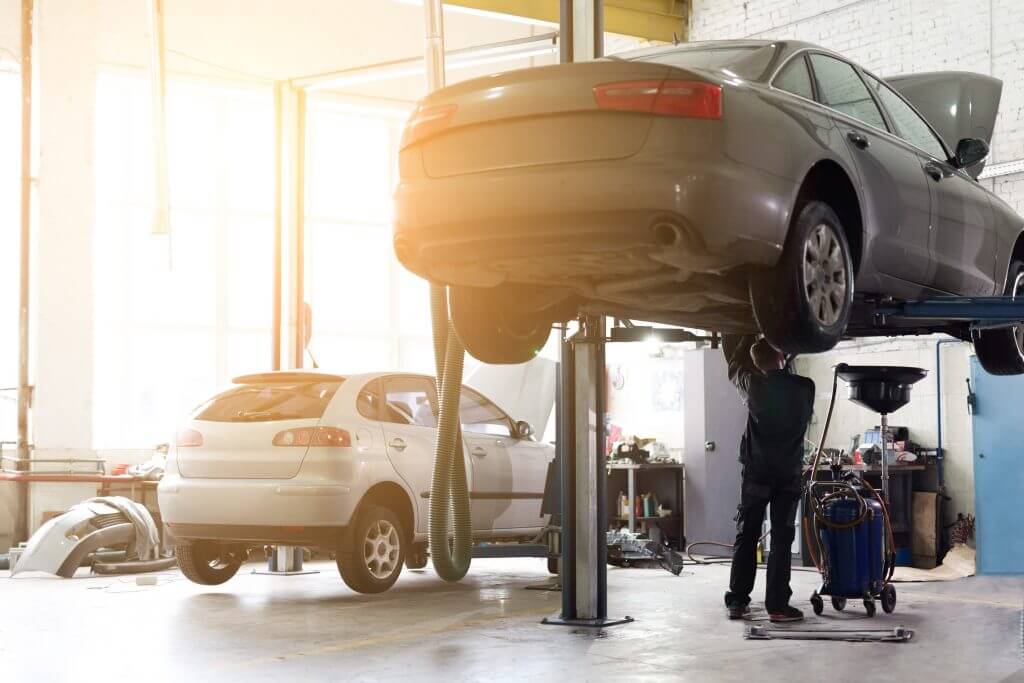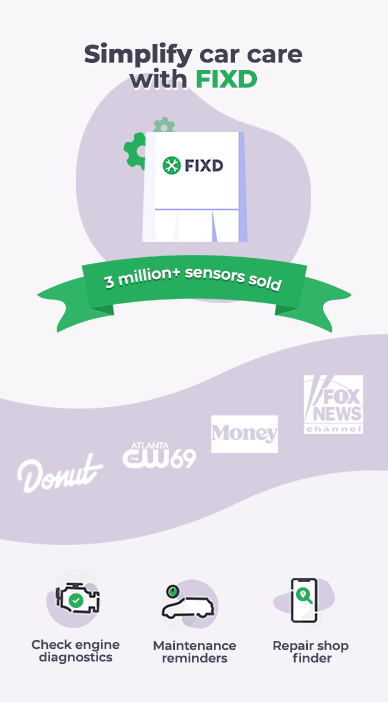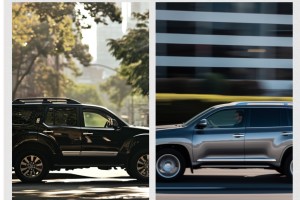Vehicle service contract is the name usually used for products sold straight from the dealership that covers both repairs and maintenance services, while an extended vehicle warranty is sold by a third party company (sometimes affiliated with the manufacturer) and applies to repairs only.
Even if you own one of the most reliable vehicles on the market, car repairs are inevitable. New cars have factory warranties to cover any major defects, but depending on the year, make, and model of your vehicle, these warranty coverages will vary. Older and or high mileage vehicles are even more likely to need more repairs and less likely to be covered by a factory warranty. If your factory warranty has expired, there are still options to help cover unexpected out-pocket expenses on your vehicle. This is where vehicle service contracts and extended vehicle warranties come into play.
Keep in mind, the two can be practically identical in terms of how the repair experience feels, but there are differences between the two that could sway your decision.
Below is an in-depth comparison of vehicle service contracts v.s. extended vehicle warranties.
What Is An Extended Vehicle Warranty?

Also referred to as car warranty insurance, an extended warranty is basically an insurance plan you pay into to protect against any defects or repairs. As its name suggests, it acts as an extension of warranty coverage once the factory warranty has expired.
Depending on the vehicle, the factory warranty can provide a variety of coverages (basic, powertrain, corrosion, etc) for specific amounts of time and mileage (ie, most basic warranties are good for 3 years or 36,000 miles, whichever comes first). Once the factory warranties expire, an extended vehicle warranty steps in to fill in any gaps. Pay close attention to your factory warranty when shopping for an extended warranty, especially if your car’s factory warranty has long coverages. For example, if your car has a really good factory powertrain warranty and the car has low miles, you probably shouldn’t pay for added coverages to the powertrain system (such as the engine and transmission).
If you’re looking for affordable extended warranty coverage, check out the FIXD Vehicle Protection Plan. FIXD has partnered with CARCHEX, the industry leader in extended warranties, to cover everything from the engine and other powertrain parts to air conditioning and electrical systems, all for one low monthly fee. There are 5 levels of coverage available to suit all needs and budgets. Call now for a no-cost, no-obligation quote.
Extended Vehicle Warranty FAQs
Is it worth it to buy an extended warranty?
Just like an insurance policy or optional feature on your car, one of the most important factors to decide when considering an extended warranty is the type of vehicle you are purchasing. If you are looking to buy a new car that is known for being reliable, then chances are you can save money by declining an extended warranty. If the car is pre-owned or is known for needing expensive repairs, then an extended warranty can actually save you money in the long run.
Is it better to put money aside for vehicle repairs or buy an extended warranty?
Your budget also plays a role in deciding on whether or not to buy an extended warranty. Paying a few thousand dollars up front for an extended warranty can help save you a lot of money down the road in repairs. That being said, if you have money saved up that you can earmark for car maintenance and repairs, declining extended warranty coverage can help lower your monthly car payments as this is usually rolled in with the car loan.
Can I cancel an extended vehicle warranty?
All extended warranties are different, but most of the time, you can cancel the coverages, if needed. This is usually most helpful if you sell the car or if you’re looking to lower your car payments with a refinance. When canceling an extended warranty, keep in mind that the amount you get back will likely be prorated meaning, how much money you get back will be based on how long the coverage has already been in effect and how many months of coverage are left on your warranty contract.
Extended Vehicle Warranty Pros and Cons

Pros:
- Protection against unexpected repairs
- Various options depending on budget
- Repairs can be performed at any ASE-certified repair facility
Cons:
- Not useful if you plan on selling the car before factory warranty expires
- Doesn’t cover maintenance items
- Doesn’t cover repair items if a factory warranty is still in effect
What Is A Vehicle Service Contract?
Although “vehicle service contract” and “extended vehicle warranty” are sometimes used interchangeably, they are not the same. Vehicle service contracts sometimes include coverage for maintenance items too, not just repairs like an extended vehicle warranty.
This means that not only will repairs and defects be covered, but you can also get coverage for preventative maintenance services such as brake pad replacement. Obviously, the more items a service contract covers, the more expensive it will be, so be sure to keep your budget in mind (long term and short term) when deciding on whether or not to purchase a vehicle service contract.
Vehicle service contracts are also often sold directly by the dealership, and the coverage is likely to be limited to services performed by the selling dealership or dealership group. With more dealership groups replacing smaller, independent dealers, this scenario is becoming less of a restriction for repairs as many larger dealer groups are regional and/or nationwide. Still, this is an important detail to ask about before signing on the dotted line.
Vehicle Service Contract FAQs
How to purchase a vehicle service contract or extended vehicle warranty?
If you’re buying a car through a dealership or car lot, the easiest way to buy a vehicle service contract is often there at the dealership. The advantage is that you can roll the price of the service contract into the financing. If you don’t want a higher car payment as a result of adding a service contract, you can also pay for it as a separate transaction either through the dealership or directly through the service contract provider.
Can I buy a vehicle service contract on an older car?
Technically, you can buy a service contract on just about any car, but older or higher-mileage vehicles will cost more to cover. It is also harder to find coverage for older cars.
Accordion Tab Title 3
Vehicle Service Contract Pros and Cons
Pros:
- Can include maintenance items
- Protection against unexpected repairs
- Supplement to factory warranty
Cons:
- More expensive especially if maintenance items are covered (granted the maintenance being bundled could save you money depending on the discount you receive on these services)
- Not included with new vehicle purchase
- Many options to consider
How Do A Vehicle Service Contract And Extended Vehicle Warranty Compare To A Factory Warranty?
The key difference between a factory warranty v.s. a vehicle service contract or extended vehicle warranty is that a factory warranty is included with the purchase of a car and the latter two are optional upcharges on new or pre-owned vehicles. All three help vehicle owners cover repairs and defects, but they each have unique agreements that affect costs, component coverages, and the location at which repairs can be performed.
Check out our Ultimate Guide to Car Warranties to learn more about the different warranties available to you.
Cost
One of the perks of buying a new or newer vehicle is that most major defects and/or repairs are covered by the factory warranty, which does not cost anything either up front or at the time of repair (such as a deductible for an extended warranty or vehicle service contract). Service contracts and extended warranties, on the other hand, are optional add-ons that buyers can purchase directly from a dealership (on new or pre-owned vehicles) or they can be purchased privately. Similar to car insurance plans, the pricing of a vehicle service contract or extended vehicle warranty can vary greatly depending on factors such as the length of time/mileage of coverage, the breadth of parts/repairs covered, and the amount of the deductible, if included.
Coverage
Factory warranty coverages vary by the year, make, and model of the vehicle. While there is no universal standard, the time and mileage limits listed on the factory warranty for your specific car are set in stone. If you buy a 2022 Honda Civic, you have the same factory warranty as everyone else who bought one. The only changes that may occur to a factory warranty are warranty extensions if a defective part is found. This is relatively rare and is meant to help protect the consumer.
Extended warranties and service contracts, on the other hand, are more flexible. Buyers can choose longer or shorter terms to fit their needs and budgets and some service contracts include vehicle maintenance items such as oil changes. A key area to watch for when considering coverage is that not all extended warranties and service contracts are transferable, which means if you are buying or selling a vehicle with one of these, do your research before assuming the coverage will transfer.
Location
All factory warranty repairs must be performed at a certified OEM dealership, while extended vehicle warranties and vehicle service contracts are usually honored at any ASE-certified repair shop (including independent shops). There are pros and cons to both dealerships and independent repair shops, but at the end of the day, it tends to come down to personal preference.
| Dealership | Repair Shop |
|---|---|
| Pros | Pros |
| Uses OEM parts for services and repairs | Able to work on all makes and models |
| Factory-certified technicians | ASE-certified technicians |
| Perks from purchasing dealership | Many locations including some make-specific shops |
| Cons | Cons |
| Higher prices for parts and labor | Usually uses aftermarket parts |
| Fewer locations | Can be hard to narrow down the right shop |
| Long waits for appointments | Can’t read OEM-specific P0xxx codes |
Things To Consider When Shopping For Service Contracts or Extended Warranties
- Costs – How much does the coverage cost? (Including the deductible due at time of repair)
- Length of coverage – How many years and/or miles is the coverage good for?
- What’s covered? – More importantly, what major parts are excluded from coverage?
- Claim process – How easy is it to get repairs covered and are costs paid for up front (with reimbursement later) or does the company pay the shop directly?
- Reputation – Research the extended warranty/service contract company before purchasing a plan.
Extended Warranty Scams

One of the most popular scams out there right now is unsolicited telephone calls regarding extended vehicle warranties. These telemarketing scams may be trying to steal personal information. But they could also be selling an extended warranty and at the same time and scamming you too. A seedy warranty company may not cover the repairs that the salesperson promised over the phone. Always do your research when shopping for an extended warranty, and don’t purchase plans from unsolicited companies. ALWAYS READ THE CONTRACT BEFORE AGREEING TO ANYTHING!
If you get one of these calls and suspect a scam, you can report any problems to the Federal Trade Commission.
Is An Extended Vehicle Warranty or Vehicle Service Contract Right For Me?
Since modern cars are more difficult than ever for DIYers to work on, considering an extended vehicle warranty or a vehicle service contract is a great way to protect your investment. While most service contracts and extended warranties are relatively expensive, they can save you a lot of money down the road when covering unexpected repairs and breakdowns on your vehicle. Like a factory warranty, extended warranties and service contracts won’t provide coverage for excessive wear and tear on the vehicle and some modifications could also negate coverages.
If you’re looking for coverage on your vehicle once the factory warranty has expired, be sure to check out the CARCHEX+FIXD Vehicle Protection Plan.
Whether your car has a factory warranty, an extended warranty, or a service contract, you should always stay on up to date with your car’s manufacturer-recommended maintenance schedule, which varies by year, make and model. Get the FIXD Sensor and free app today for automated maintenance alerts based on your exact vehicle, and you’ll also get access to engine diagnostics, a trusted repair shop finder, DIY car repair tips, and more!

Lifelong automotive enthusiast with a soft spot for offroading. Wrencher turned writer, but I still love to tinker on just about anything with an engine. Dream car: tie between a ‘71 Hemi ‘Cuda and a ’91 GMC Syclone. #GirlDad #SaveTheManuals














